
Tirana Summit in the midst of Europe's vital problems
The latest Summit between the European Union (EU) and "Western Balkans"[1] states was held in Tirana on December 6, 2022. The Summit was introduced by the EU as "the first-ever summit between EU and Western Balkans leaders to take place in the Western Balkans region." [2] Summit was organized as part of the EU's "strategic cooperation" with some Balkan countries and will be the third since the start of the Ukraine-Russia conflict.
It is worth remembering that the EU accession process for the "Western Balkans" countries is at the centre of EU- "Western Balkans" relations. The conditions for establishing these relations were first laid down in the EU Council Conclusions of April 1997. In 1999, the EU Council established the Stabilisation and Association Process (SAP) and confirmed that the "Western Balkans" countries would be eligible for EU membership if they met the criteria established at the Copenhagen European Council in June 1993.[3] As per the official position of the EU, "The prospect of EU membership is an incentive to bring forward reforms in the Western Balkans. Reforms are key for the European path, but more importantly, they are crucial to improving political and economic governance, the rule of law, media freedom, and conditions for civil society. This is in the shared interest of the citizens of the Western Balkans and the EU." In this context, it is worth remembering that these principles, which seem very consistent on paper, often provide an excuse for the double standard applied by the EU on membership, and it was a method used especially for Turkey in previous EU enlargements. The most obvious examples of this double standard are the hasty admission of the Greek Cypriot Administration of Southern Cyprus, Romania, and Bulgaria to the EU. In the case of the Greek Cypriot Administration of Southern Cyprus, the EU made a historical mistake by admitting an Administration of a divided island to the Union. It does not seem possible to say that the EU has a sincere answer regarding the extent to which Romania and Bulgaria met the EU's criteria listed above at the time of their accession to the EU. In fact, the discriminatory method applied to Turkey has been applied to the "Western Balkans" countries for years by the EU. In this context, the second paragraph of the declaration published following the last Tirana summit, which is another "lullaby" that explains the EU membership "perspective" of the "Western Balkans" countries, is given below:
"The EU reconfirms its full and unequivocal commitment to the European Union membership perspective of the Western Balkans and calls for the acceleration of the accession process, based upon credible reforms by Partners, fair and rigorous conditionality, and the principle of own merits, which is in our mutual interest. It welcomes the progress made by the Western Balkans Partners on their respective EU paths since the EU-Western Balkans Summit at Brdo in October 2021. In particular, the EU welcomes the holding of the first Intergovernmental Conferences with Albania and North Macedonia."[4]
For years, the EU has produced initiative after initiative for the "Western Balkan" countries. There are more than thirty initiatives involving these countries. The major regional initiatives are the Berlin Process, Brdo-Brijuni Process, and the Open Balkan Efforts.[5] Tiran Declaration seems to be the start of another process in the region.
The EU appears to be attempting to initiate a new procedure, as previous policies have either stalled or failed. The Berlin process that began in 2014 has evolved into an annual meeting of leaders in which they chat with no tangible outcomes. The Brdo-Brijuni Process failed in its most recent session. The Open Balkan Initiative is not an EU initiative. The underlying question is whether or not the Tirana Process is new. Will it succeed?
Berlin Process
The Berlin Process is a forum for high-level collaboration between the "Western Balkan" states (WB6) and the Berlin Process host countries, as well as civil society, youth, and enterprises from the region. It began in 2014 as a four-year initiative. However, it failed to meet its objectives and lasted into 2018.[6]
The 2014 German Chair Declaration aimed to achieve concrete progress in four areas. These were, resolving lingering bilateral and domestic difficulties, bringing about reconciliation within and between the region's societies, increasing regional economic collaboration, and establishing the basis for sustainable growth.[7]
Under the Berlin Process, nine Summits have been held to date. The most recent Summit took place in Berlin on November 3, 2022.[8] However, despite its objectives, it seems to have only achieved some goals in the "regional connectivity" field.[9]
Brdo-Brijuni Process
The other Process concerning the region is called the Brdo-Brijuni Process. It is an international event held annually in the Balkans. It was launched in 2013 by the presidents of Slovenia and Croatia, Borut Pahor and Ivo Josipovi. The initial formal gathering took place at Brdo pri Kranju, Slovenia. The Process's primary objective is expanding the European Union to include certain Balkan states.
The aim of the Process was as follows: regional and European level economic competitiveness and integration, and to increase regional level stability and cooperation.[10]
The most recent Brdo-Brijuni Process conference took place at Brdo pri Kraju on September 11, 2022. [11] It was unsuccessful. The participating countries could not adopt a declaration.[12] Instead, conclusions were adopted. In the adopted decisions, the following was stated:
"1. We reiterate the EU enlargement policy as the most direct contributor to maintaining peace and stability in our region, and more than ever, a geopolitical issue.
2. We call for an accelerated EU integration process in line with the well-established conditions for EU membership.
3. We call for granting the candidate status to Bosnia and Herzegovina by the end of 2022.
4. We call for the removal of visa regime for the entire Western Balkans by the end of 2022.
5. We call for EU to stand side by side with Western Balkans in mitigating the consequences of the looming economic and energy crisis.
6. We reaffirm our firm commitment to the dialogue as the only viable solution to the existing differences and open political issues in the region."[13]
Open Balkans
At the 2017 Berlin Process held in Trieste, some Balkan nations becoming closer was initially proposed. Finally, the leaders agreed on an action plan for an economic zone. On October 11, 2019, the prime ministers of Albania and North Macedonia, Edi Rama and Zoran Zaev, as well as the president of Serbia, Aleksandar Vučić, signed a statement of intent to create the free movement of people, products, services, and money among the three nations. On July 29, 2021, the Open Balkan Initiative was officially announced and went into effect.[14]
The Open Balkan initiative aims to replicate the European Union on a smaller scale in the Balkans due to the failure of the accession of the Balkan countries.[15]
Notable Points Regarding the Tirana Declaration
- The Tirana 2022 summit does not appear to be a part of any of the processes or initiatives listed above. Instead, it seems to be a new process or initiative based on the "Strategic Agenda of the European Council for 2019-2024".[16]
- As noted earlier, the EU seems to push forward the idea that this is the first-ever Summit between EU and "Western Balkans" leaders to take place in the "Western Balkans" region. The EU argues that the Summit provided a chance to reaffirm the significance of the strategic cooperation between the EU and the Western Balkans. It argues that this is important; hence the region has a clear EU orientation.[17]
- It could be said that the 33 paragraph summit declaration was a two-pronged statement, both political and economic.[18] Most of the points are a reiteration of the past points made in the past ten years in different processes and initiatives. Except maybe for the investment points. They seem to be more concrete. First, the EU will remove the roaming services for the Balkan countries. Secondly, the EU states that it will make investments to overcome the difficulties caused by the Ukraine-Russia conflict.[19] For example, the EU is committing a financial aid package, the "Energy Support Package," of 1 billion euros in grants, which can bring in 2.5 billion euros in investments. This, it argues, will alleviate the suffering of the region.[20]
- Another bilateral commitment is the EU's "Repower Plan," which intends to lessen the EU and Western Balkans' dependency on Russian gas. In addition, the Economic and Investment Plan (EIP) envisions an ambitious investment package that will mobilize about 30 billion euros for the area.[21]
- One of the most critical public policy issues of the 21st century is and will continue to be inter-state and continental migration. This issue was also discussed in the 27-29 paragraphs of the Tirana declaration. Yet it seems that one of the hidden goals of the EU appears to be, by forcing "Western Balkan" countries to align their visa policy with the EU, they want to build rifts among the Balkan countries. One of these countries is Turkey.[22] In the past, Western European leaders have repeatedly made declarations about how they would like to cut these ties. Among them was President of France Emmanuel Macron comes at the top of the list. He had stated, "I don't want a Balkans that turns toward Turkey…".[23]
In Lieu of Conclusion
One of the goals of the EU regarding the "Western Balkans" is to increase stability in the region. Yet over the last years, especially the last five years, certain EU states have caused regional destabilization. The latest example is the unfortunate Slovenian Document that was used to redraw the Balkans map by carving up Bosnia and Herzegovina.[24]
As history has shown time and again, in various situations and fields, Western European countries believe that they are above history and culture and that history is shaped by them. They think they can shape anything they want. This includes identity. They think they can destroy and recreate identities.
The most striking example of this supremacist approach in the context of the Balkans is the fabricated term "Western Balkans." The term Western Balkans has been created, used, and is still being used under such circumstances. The EU is still dividing the Balkans into three subgroups. According to the EU, Croatia, Bulgaria, Romania, and Greece are not part of the Balkans anymore since they are members of the EU. On the other hand, Bosnia-Herzegovina, Serbia, Montenegro, Kosovo, Albania, and Macedonia comprise the so-called "Western Balkans" sub-region. Turkey, by its lonesome self, makes up the "Eastern Balkans" region. EU's this discriminatory policy was accepted by Balkan states in the hopes of being speedily taken to the EU, which has not been done. This issue of discriminatory sub-grouping, thus identity crisis, seems to be continuing in the new Process. Unfortunately, the EU continues this policy and attempts to build walls between Balkan countries with historical ties.
This seems to be the case in the Tirana declaration as well. The EU refrains from addressing the identity problems it created. Simply, it is trying to tear the area apart. It also tries to destroy the region's historical ties by building artificial visa walls. Perhaps worse, if it repeats its past habits, it will try to redraw the borders. If it dares to do so, it will only deepen the catastrophe of war that Europe faces today. Let us hope that wisdom will prevail in the EU in the turbulent days of the century.
[1] AVİM considers the term "Western Balkans" to be a politically motivated separatist terminology and insist on the use of the geographical and historical identification "Balkans" regarding the region.
[2] “EU-Western Balkans Summit in Tirana, 6 December 2022,” Information site, Council of The European Union, December 8, 2022, https://www.consilium.europa.eu/en/meetings/international-summit/2022/12/06/.
[3] “The EU and the Western Balkans: Towards a Common Future,” Information site, European Union External Action, March 16, 2022, https://www.eeas.europa.eu/eeas/eu-and-western-balkans-towards-common-future_en.
[4] “EU-Western Balkans Summit in Tirana, 6 December 2022.”
[5] “2022 Western Balkans: Between Berlin Process and Open Balkan,” Information site, The International Institute for Middle East and Balkan Studies, November 22, 2022, https://www.ifimes.org/en/researches/2022-western-balkans-between-berlin-process-and-open-balkan/5103.
[6] “The Berlin Process In a Nutshell” (Sarajevo: Deutsche Gesellschaft für Internationale Zusammenarbeit, 2018), https://www.giz.de/en/downloads_els/The_Berlin_Process.pdf.
[7] “The Berlin Process,” Information site, ShtetiWeb, 2021, https://shtetiweb.org/berlin-process/.
[8] “Berlin Process | Berlin Process Summit 2021,” Information site, Western Balkans Summit, 2022, https://www.berlinprocess.de; Teoman Ertuğrul Tulun, “Balkans 2016: Integration Efforts In A Time Of Uncertainity,” Center for Eurasian Studies 2017, no. 2 (January 9, 2017): 4, https://doi.org/10.31219/osf.io/atg8j , https://avim.org.tr/en/Analiz/BALKANS-2016-INTEGRATION-EFFORTS-IN-A-TIME-OF-UNCERTAINITY .
[9] “The Berlin Process In a Nutshell”; “Berlin Process Summit: EU Announces €1 Billion Energy Support Package for the Western Balkans and Welcomes New Agreements to Strengthen the Common Regional Market” (European Commission, November 3, 2022), IP/22/6478, https://ec.europa.eu/commission/presscorner/detail/en/ip_22_6478.
[10] “Conclusions of the Leaders’ Meeting of the Brdo Process Slovenia” (President of The Republic Of Slovenia, July 25, 2013), http://www.up-rs.si/up-rs/uprs.nsf/cc1b0c2e0c8f0e70c1257aef00442bbd/0be5aa07dad13947c1257bb30059da69/$FILE/CONCLUSIONS%20-%20BRDO%20PROCESS.pdf; “Predsednik Republike Slovenije | Predsednik Republike Borut Pahor Je Danes Gostil Srečanje Voditeljev Brdo Process,” Information site, President of Slovenia, July 25, 2013, http://www.up-rs.si/up-rs/uprs.nsf/objave/0BE5AA07DAD13947C1257BB30059DA69?OpenDocument.
[11] “President of the Republic of Slovenia | President Pahor to Hold 11th Leaders Meeting of Brdo-Brijuni Process,” Information site, President of Slovenia, September 12, 2022, https://www.predsednik.si/up-rs/uprs-eng.nsf/pages/63F752DE547AC9B0C12588B700463931?OpenDocument.
[12] Radio Slobodna Evropa, “Lideri Zapadnog Balkana nisu usvojili deklaraciju zbog neslaganja unutar BiH,” Radio Slobodna Evropa, 14:24:59Z, sec. Vesti, https://www.slobodnaevropa.org/a/brdo-brijuni-brioni-2022/32029578.html.
[13] “Brdo-Brijuni summit adopts six-point conclusion,” N1, September 12, 2022, https://rs.n1info.com/english/news/brdo-brijuni-summit-adopts-six-point-conclusion/.
[14] Julija Simić, “Three Countries Agree Mini Schengen in the Balkans,” Www.Euractiv.Com, October 11, 2019, sec. Enlargement, https://www.euractiv.com/section/enlargement/news/three-countries-agree-mini-schengen-in-the-balkans/; Adela Gjorgjiosk, “North Macedonia External Relations Briefing: The OpenBalkan Initiative Officially Announced in Skopje,” China-CEE Institute 42, no. 4 (July 2021): 2.
[15] Simić, “Three Countries Agree Mini Schengen in the Balkans”; “Mini-Schengen: What Does This Accord Mean for the EU?,” Information site, European Travel Information and Authorisation System, 2021, https://www.etiasvisa.com/etias-news/mini-schengen-balkans.
[16] “A New Strategic Agenda 2019-2024,” Information site, Council of The European Union, June 20, 2019, 2019–24, https://www.consilium.europa.eu/en/press/press-releases/2019/06/20/a-new-strategic-agenda-2019-2024/; “EU-Western Balkans Summit in Tirana, 6 December 2022.”
[17] “EU-Western Balkans Summit in Tirana, 6 December 2022.”
[18] “What Does the ‘Declaration of Tirana’ Predict? From the 1 Billion Euro Investment Program to the EU ‘Repower’ Plan,” accessed December 11, 2022, https://scantv.al/what-does-the-declaration-of-tirana-predict-from-the-1-billion-euro-investment-program-to-the-eu-repower-plan/.
[19] “Tirana Declaration, 6 December 2022” (European Union, December 6, 2022), 60568, https://www.consilium.europa.eu/media/60568/tirana-declaration-en.pdf.
[20] “Tirana Declaration, 6 December 2022.”
[21] “Tirana Declaration, 6 December 2022.”
[22] “AB’den 5 ülkeye ‘Türkiye’ye vize uygulayın’ baskısı,” December 5, 2022, https://www.turizmguncel.com/haber/abden-bati-balkan-ulkelerine-turkiye-baskisi.
[23] Teoman Ertuğrul Tulun, “France With Macron: The Destabilizing Factor In The Balkans,” Center For Eurasian Studies (AVİM) 2019, no. 24 (November 1, 2019): 4 , https://doi.org/10.31219/osf.io/tvhwc , https://avim.org.tr/en/Analiz/FRANCE-WITH-MACRON-THE-DESTABILIZING-FACTOR-IN-THE-BALKANS.
[24] Teoman Ertuğrul Tulun, “Slovenian Document On Dismemberment Of Bosnia-Herzegovina Confirms The Necessity Of Continuing The PIC-OHR-Bonn Powers,” Center For Eurasian Studies Analysis Series 2021, no. 18 (April 30, 2021): 6, https://doi.org/10.31219/osf.io/xpwhb , https://avim.org.tr/en/Analiz/SLOVENIAN-DOCUMENT-ON-DISMEMBERMENT-OF-BOSNIA-HERZEGOVINA-CONFIRMS-THE-NECESSITY-OF-CONTINUING-THE-PIC-OHR-BONN-POWERS.
© 2009-2025 Center for Eurasian Studies (AVİM) All Rights Reserved
No comments yet.
-
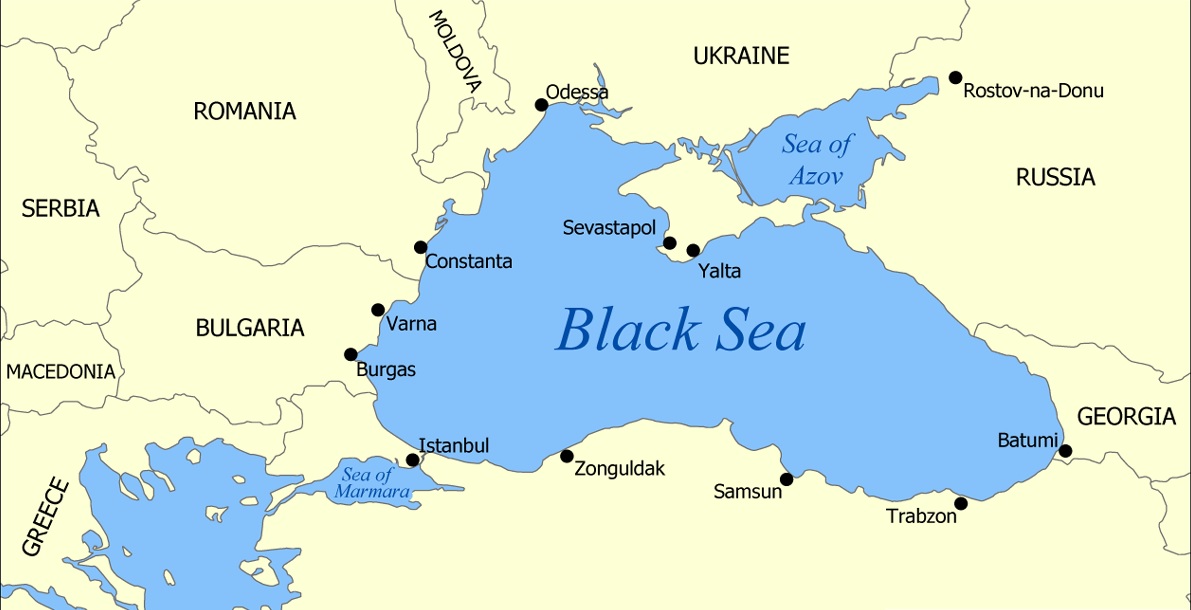 BLACK SEA NEEDS CONFIDENCE AND SECURITY BUILDING MEASURES MORE THAN EVER
BLACK SEA NEEDS CONFIDENCE AND SECURITY BUILDING MEASURES MORE THAN EVER
Teoman Ertuğrul TULUN 30.10.2018 -
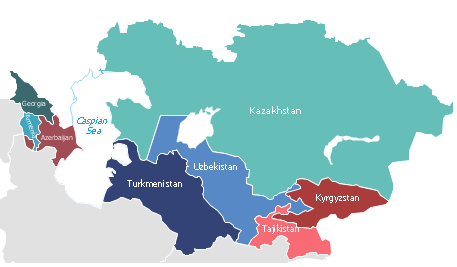 A QUARTER OF A CENTURY OF INDEPENDENCE OF CENTRAL ASIAN AND SOUTH CAUCASUS COUNTRIES: AN ECONOMIC SNAPSHOT AND PROSPECTS FOR THE FUTURE
A QUARTER OF A CENTURY OF INDEPENDENCE OF CENTRAL ASIAN AND SOUTH CAUCASUS COUNTRIES: AN ECONOMIC SNAPSHOT AND PROSPECTS FOR THE FUTURE
Teoman Ertuğrul TULUN 14.12.2016 -
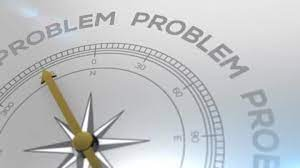 EU STRATEGIC COMPASS FOR SECURITY AND DEFENCE SHOWS THE WRONG COURSE AT THE WORST POSSIBLE TIME
EU STRATEGIC COMPASS FOR SECURITY AND DEFENCE SHOWS THE WRONG COURSE AT THE WORST POSSIBLE TIME
Teoman Ertuğrul TULUN 04.04.2022 -
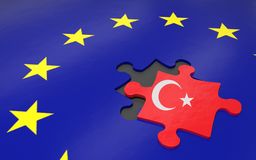 EP TURKEY RAPPORTEUR PIRI CONFIRMS WHAT HAD ALWAYS BEEN SUSPECTED: “EVEN IF TURKEY WERE A PERFECT DEMOCRACY, MERKEL AND […] SARKOZY WOULD NOT WANT TURKEY IN THE EU”
EP TURKEY RAPPORTEUR PIRI CONFIRMS WHAT HAD ALWAYS BEEN SUSPECTED: “EVEN IF TURKEY WERE A PERFECT DEMOCRACY, MERKEL AND […] SARKOZY WOULD NOT WANT TURKEY IN THE EU”
Teoman Ertuğrul TULUN 04.04.2019 -
 TURKISH MIGRANTS AND THEIR CONTRIBUTION TO TECHNOLOGICAL DEVELOPMENT
TURKISH MIGRANTS AND THEIR CONTRIBUTION TO TECHNOLOGICAL DEVELOPMENT
Teoman Ertuğrul TULUN 24.03.2021
-
 2016 SPECA ECONOMIC FORUM - REPORT
2016 SPECA ECONOMIC FORUM - REPORT
AVİM 12.12.2016 -
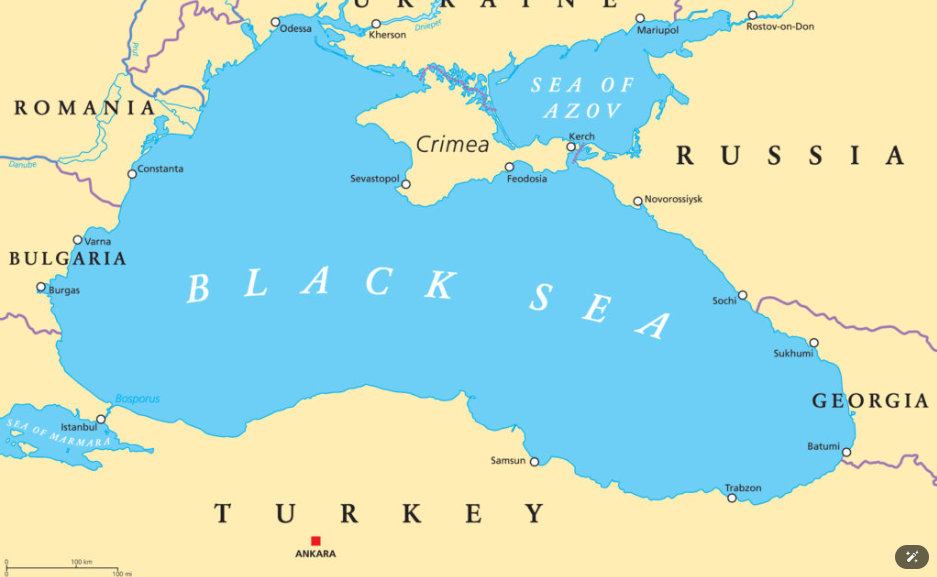 GUARDIANSHIP OR EQUILIBRIUM? POWER, AND THE LEGACY OF ORDER IN THE BLACK SEA
GUARDIANSHIP OR EQUILIBRIUM? POWER, AND THE LEGACY OF ORDER IN THE BLACK SEA
Teoman Ertuğrul TULUN 02.09.2025 -
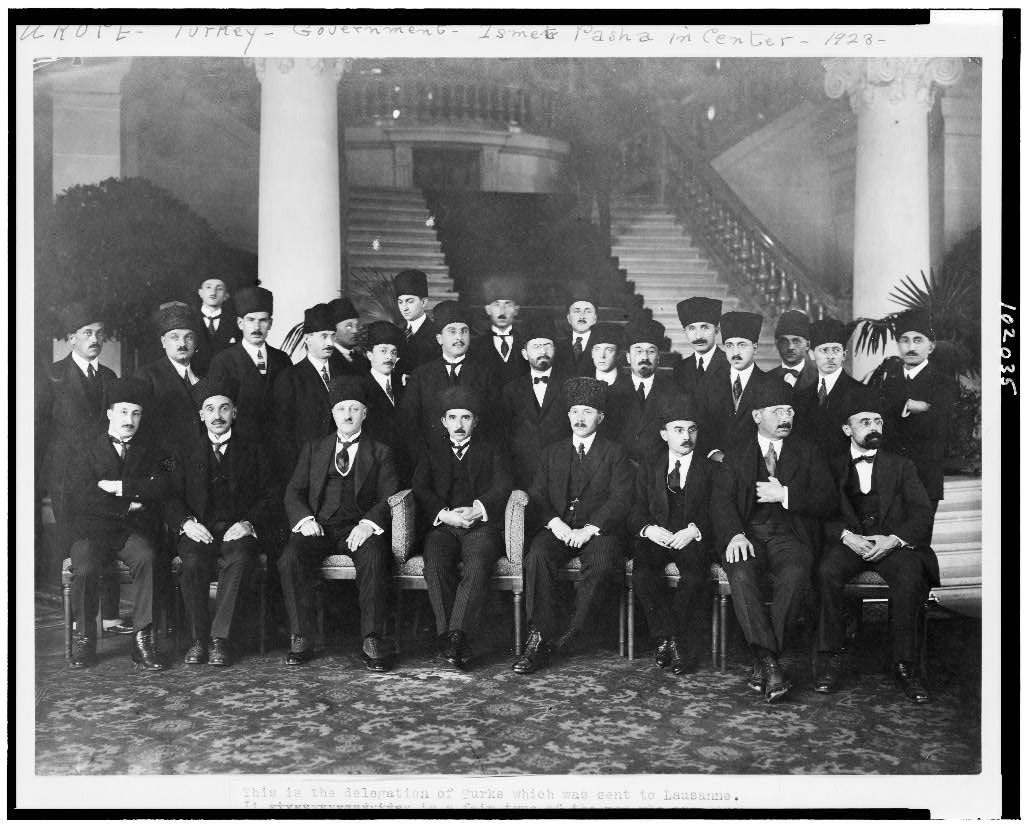 PEACE TREATY OF LAUSANNE AND THE END TO ARMENIAN ASPIRATIONS
PEACE TREATY OF LAUSANNE AND THE END TO ARMENIAN ASPIRATIONS
Teoman Ertuğrul TULUN 22.07.2016 -
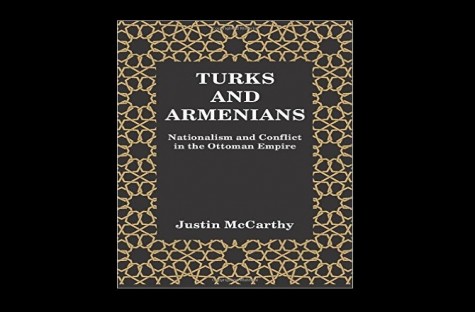 CHAPTER BY CHAPTER SYNOPSIS AND REVIEW OF TURKS AND ARMENIANS: NATIONALISM AND CONFLICT IN THE OTTOMAN EMPIRE BY JUSTIN MCCARTHY - 7
CHAPTER BY CHAPTER SYNOPSIS AND REVIEW OF TURKS AND ARMENIANS: NATIONALISM AND CONFLICT IN THE OTTOMAN EMPIRE BY JUSTIN MCCARTHY - 7
Hazel ÇAĞAN ELBİR 22.10.2015 -
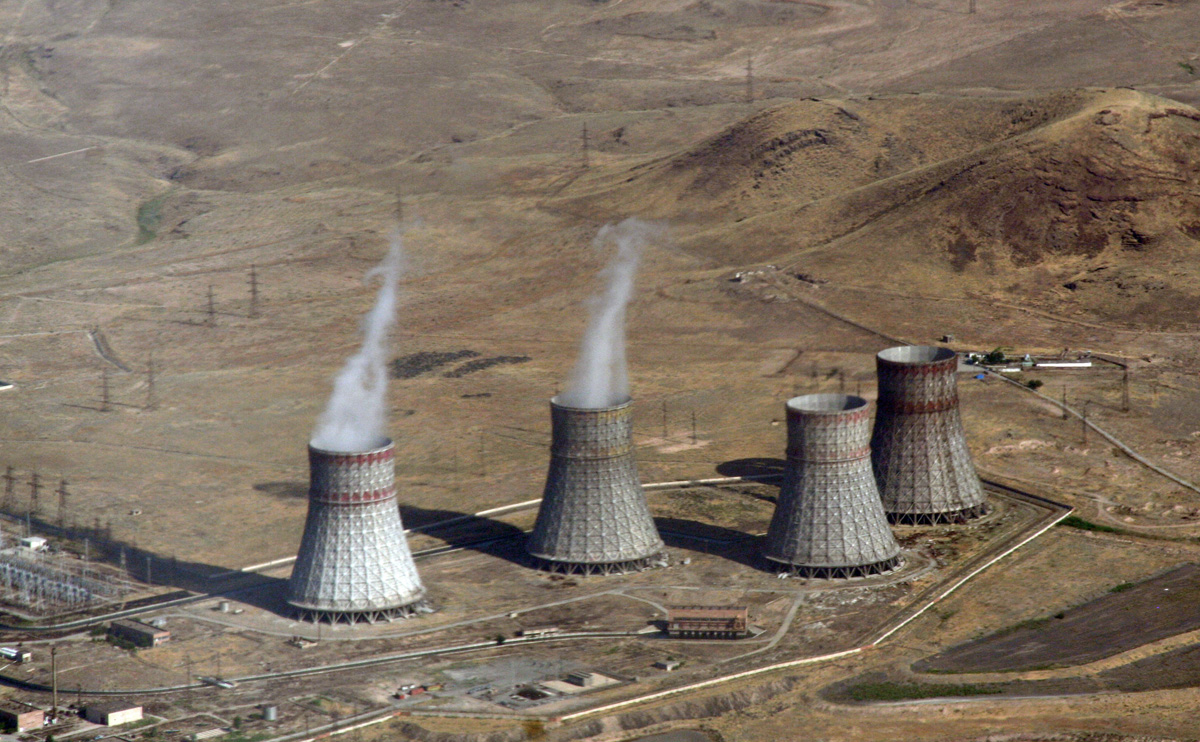 NUCLEAR THREAT IN THE SOUTH CAUCASUS; METSAMOR TO CONTINUE OPERATING
NUCLEAR THREAT IN THE SOUTH CAUCASUS; METSAMOR TO CONTINUE OPERATING
Özge Nur ÖĞÜTCÜ 20.10.2016
-
25.01.2016
THE ARMENIAN QUESTION - BASIC KNOWLEDGE AND DOCUMENTATION -
12.06.2024
THE TRUTH WILL OUT -
27.03.2023
RADİKAL ERMENİ UNSURLARCA GERÇEKLEŞTİRİLEN MEZALİMLER VE VANDALİZM -
17.03.2023
PATRIOTISM PERVERTED -
23.02.2023
MEN ARE LIKE THAT -
03.02.2023
BAKÜ-TİFLİS-CEYHAN BORU HATTININ YAŞANAN TARİHİ -
16.12.2022
INTERNATIONAL SCHOLARS ON THE EVENTS OF 1915 -
07.12.2022
FAKE PHOTOS AND THE ARMENIAN PROPAGANDA -
07.12.2022
ERMENİ PROPAGANDASI VE SAHTE RESİMLER -
01.01.2022
A Letter From Japan - Strategically Mum: The Silence of the Armenians -
01.01.2022
Japonya'dan Bir Mektup - Stratejik Suskunluk: Ermenilerin Sessizliği -
03.06.2020
Anastas Mikoyan: Confessions of an Armenian Bolshevik -
08.04.2020
Sovyet Sonrası Ukrayna’da Devlet, Toplum ve Siyaset - Değişen Dinamikler, Dönüşen Kimlikler -
12.06.2018
Ermeni Sorunuyla İlgili İngiliz Belgeleri (1912-1923) - British Documents on Armenian Question (1912-1923) -
02.12.2016
Turkish-Russian Academics: A Historical Study on the Caucasus -
01.07.2016
Gürcistan'daki Müslüman Topluluklar: Azınlık Hakları, Kimlik, Siyaset -
10.03.2016
Armenian Diaspora: Diaspora, State and the Imagination of the Republic of Armenia -
24.01.2016
ERMENİ SORUNU - TEMEL BİLGİ VE BELGELER (2. BASKI)
-
AVİM Conference Hall 24.01.2023
CONFERENCE TITLED “HUNGARY’S PERSPECTIVES ON THE TURKIC WORLD"









